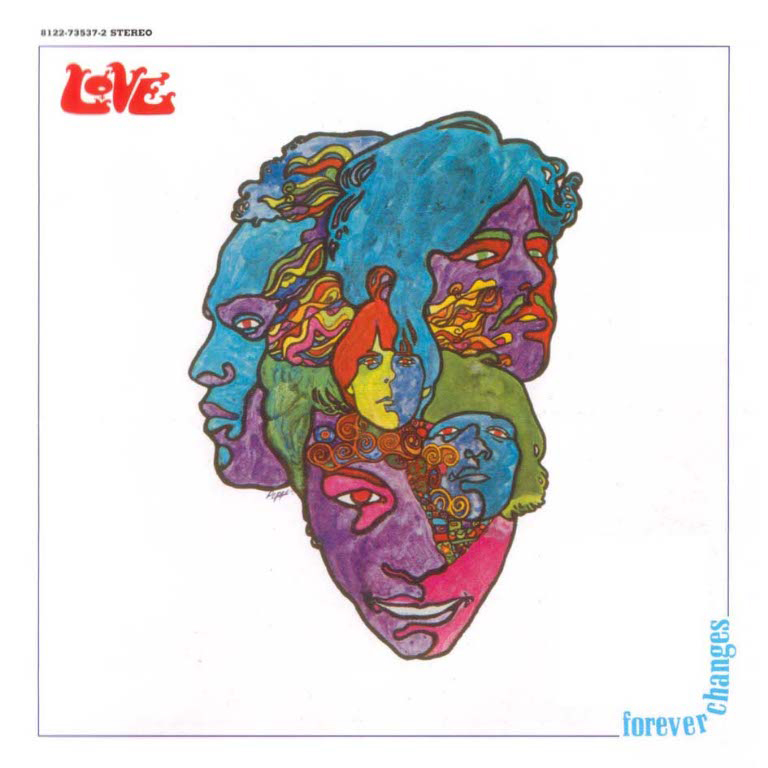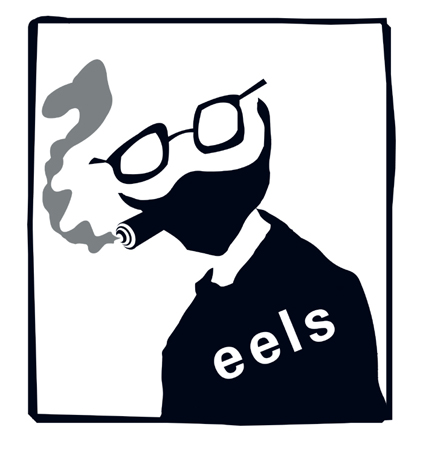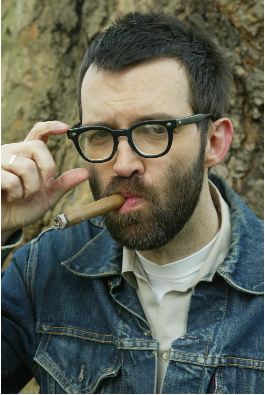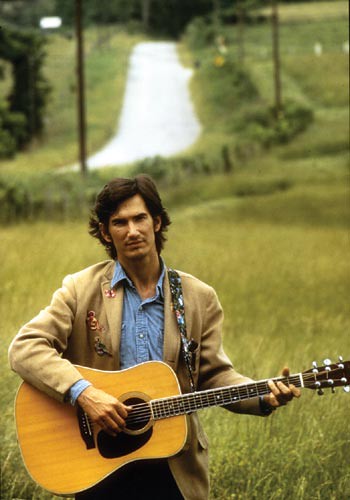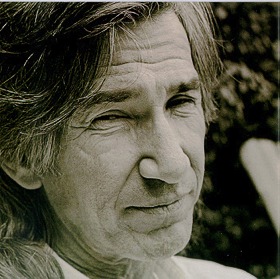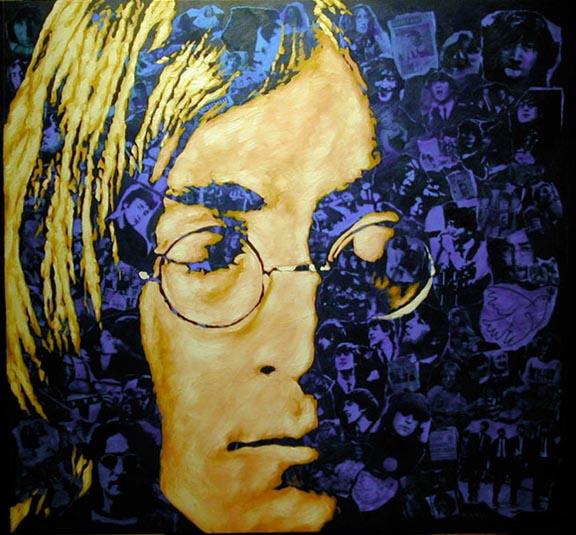
Music DVD Review: Classic Albums Series: John Lennon - Plastic Ono Band
John Lennon's first solo album Plastic Ono Band was recorded during a difficult period described by many of those who were there as a time when John was "finding himself." He had just left the Beatles, and was searching to find his own identidy -- both personally and musically -- removed from the madness that often surrounded the biggest band in the world at the time.
When viewed in hindsight, the songs on Plastic Ono Band obviously have long since bore that out. Stripped to a core unit of just Lennon, bassist Klaus Voorman, Ringo Starr on drums, and occasionally keyboardist Billy Preston (most notably on the song "God"), the simplicity of the music and arrangements confounded many of the former Beatle's fans. They of course had become used to the progressively more elaborate music that had begun with Rubber Soul and continued right on up through Sgt. Pepper, Abbey Road and the rest of the Beatles landmark recordings of the time.
John also shocked those same fans with the words "I don't believe in Beatles" found on one of Plastic Ono Band's key tracks, the song "God."
Ah yes, the lyrics.

With Plastic Ono Band, on songs like "God" and "Mother," Lennon seemed to be a man intent on standing quite literally naked before the world, and bearing his soul for all the rest of us to see. "He was always a very courageous guy," Ringo notes in one of several revealing interviews on this DVD about the making of that album. "He would just put it out there. But sometimes there were severe consequences."
Part of Eagle Rock's fabulous series on the making of Classic Albums, this DVD is not only a fascinating look at the making of that album -- it also provides a rare look into the lives of John and Yoko themselves at the time it was made. Unlike so many documentaries such as this -- that rely on informative, but often dry and boring interviews with the studio tech wizards who twiddled the knobs -- there is also lots of rare footage here of the Lennons themselves. It's just great stuff.
One of the more interesting tidbits one learns here, concerns the process of how John and Yoko recorded both of their solo albums at the same time. The result was the now famous identical covers of both records.
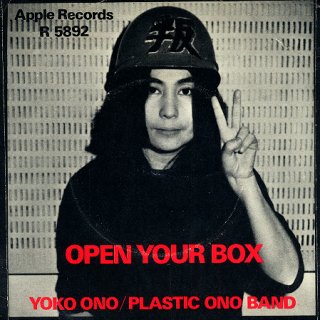
But it is also revealed here that at one point they wanted to title John's album "Primal," and Yoko's "Scream." The idea here was to demonstrate their togetherness -- both musically and of course, as a couple -- but also an acknowledgment of Arthur Janov's Primal Scream therapy, which was a heavy influence on the personal themes of John's record. As things ended up, they simply called both albums Plastic Ono Band.
But as for Yoko's album, the title "Scream" certainly would have served as truth in advertising. Ringo describes the sessions for Yoko's record as a situation where the small band just jammed, while Yoko would "do her crazy singing." Ringo then adds "Peace & Love, Yoko" with a humorous grin.

It is also revealed here that although Phil Spector was given a producer's credit on John's record, "I don't remember Phil producing anything" as Ringo reveals. The small band would record the simple, stripped down arrangements by day, while John remixed the tracks at night.
On this DVD, the whole story unfolds through some amazing footage, as well as interviews with Ringo, Yoko, Klaus Voorman, and the engineers who mastered the record. In the segments with the engineers, many of the original demos for the record are also played. In one such segment, Lennon's famous scream on "Mother" is seperated out from the backing music tracks. "I don't know how the guy could even talk after that," the engineer remarks.
There are also some pretty great extras here, including original live performances of "Mother," "Well Well Well," and "Instant Karma." Eagle Rock as always has done a great job with this revealing and fascinating documentary, which is available in stores on April 29.
John Lennon's first solo album Plastic Ono Band was recorded during a difficult period described by many of those who were there as a time when John was "finding himself." He had just left the Beatles, and was searching to find his own identidy -- both personally and musically -- removed from the madness that often surrounded the biggest band in the world at the time.
When viewed in hindsight, the songs on Plastic Ono Band obviously have long since bore that out. Stripped to a core unit of just Lennon, bassist Klaus Voorman, Ringo Starr on drums, and occasionally keyboardist Billy Preston (most notably on the song "God"), the simplicity of the music and arrangements confounded many of the former Beatle's fans. They of course had become used to the progressively more elaborate music that had begun with Rubber Soul and continued right on up through Sgt. Pepper, Abbey Road and the rest of the Beatles landmark recordings of the time.
John also shocked those same fans with the words "I don't believe in Beatles" found on one of Plastic Ono Band's key tracks, the song "God."
Ah yes, the lyrics.

With Plastic Ono Band, on songs like "God" and "Mother," Lennon seemed to be a man intent on standing quite literally naked before the world, and bearing his soul for all the rest of us to see. "He was always a very courageous guy," Ringo notes in one of several revealing interviews on this DVD about the making of that album. "He would just put it out there. But sometimes there were severe consequences."
Part of Eagle Rock's fabulous series on the making of Classic Albums, this DVD is not only a fascinating look at the making of that album -- it also provides a rare look into the lives of John and Yoko themselves at the time it was made. Unlike so many documentaries such as this -- that rely on informative, but often dry and boring interviews with the studio tech wizards who twiddled the knobs -- there is also lots of rare footage here of the Lennons themselves. It's just great stuff.
One of the more interesting tidbits one learns here, concerns the process of how John and Yoko recorded both of their solo albums at the same time. The result was the now famous identical covers of both records.

But it is also revealed here that at one point they wanted to title John's album "Primal," and Yoko's "Scream." The idea here was to demonstrate their togetherness -- both musically and of course, as a couple -- but also an acknowledgment of Arthur Janov's Primal Scream therapy, which was a heavy influence on the personal themes of John's record. As things ended up, they simply called both albums Plastic Ono Band.
But as for Yoko's album, the title "Scream" certainly would have served as truth in advertising. Ringo describes the sessions for Yoko's record as a situation where the small band just jammed, while Yoko would "do her crazy singing." Ringo then adds "Peace & Love, Yoko" with a humorous grin.

It is also revealed here that although Phil Spector was given a producer's credit on John's record, "I don't remember Phil producing anything" as Ringo reveals. The small band would record the simple, stripped down arrangements by day, while John remixed the tracks at night.
On this DVD, the whole story unfolds through some amazing footage, as well as interviews with Ringo, Yoko, Klaus Voorman, and the engineers who mastered the record. In the segments with the engineers, many of the original demos for the record are also played. In one such segment, Lennon's famous scream on "Mother" is seperated out from the backing music tracks. "I don't know how the guy could even talk after that," the engineer remarks.
There are also some pretty great extras here, including original live performances of "Mother," "Well Well Well," and "Instant Karma." Eagle Rock as always has done a great job with this revealing and fascinating documentary, which is available in stores on April 29.
